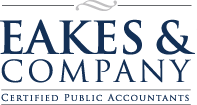CARES ACT WILL PROVIDE BILLIONS OF DOLLARS OF RELIEF
After extensive negotiations between the U.S. House of Representatives, the U.S. Senate and the White House, an agreement has been reached on a massive stimulus bill to address the financial and health care crisis resulting from the coronavirus (COVID-19) pandemic.
As of this writing, the Coronavirus Aid, Relief, and Economic Security Act (CARES Act) has been passed by the Senate and is expected to be passed by the House, although the mechanics are still to be determined because most House members are currently in their home districts. The President has indicated that he will sign the legislation.
The CARES Act includes a “Marshall Plan” for the health care system to help provide needed treatment during the pandemic and financial assistance to state, local, tribal and territorial governments, as well as to private nonprofits providing critical and essential services. It also provides significant relief to individuals, businesses and other employers to help them weather the pandemic.
Key provisions for individuals, businesses and other employers
Here’s a quick look at some of the CARES Act provisions that may affect you — keep in mind that it’s possible that some provisions could change before the act is signed into law:
Individuals
Recovery rebates of up to $1,200 for singles, $1,200 for heads of households and $2,400 for married couples filing jointly — plus $500 per qualifying child — subject to income-based phaseouts starting at $75,000, $122,500 and $150,000, respectively
Expansion of unemployment benefits, including for self-employed and gig-economy workers
Waiver of the 10% penalty on COVID-19-related early distributions from IRAs, 401(k)s and certain other retirement plans
Waiver of required minimum distribution rules for IRAs, 401(k)s and certain other retirement plans
Expansion of charitable contribution tax deductions
Exclusion for certain employer payments of student loans
Businesses and other employers
Retention tax credit for eligible employers that continue to pay employee wages while their operations are fully or partially suspended as a result of certain COVID-19-related government orders
Deferral of the employer portion of payments of certain payroll taxes
Modification of net operating loss (NOL) and limitation on losses rules
Modification of the deduction limitation on business interest
Qualified improvement property technical correction, allowing qualifying interior improvements of buildings to be immediately expensed rather than depreciated over 15 years
Expansion of the ways the Small Business Administration (SBA) can help small businesses

